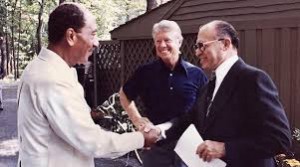Congress is the best example of the price we can pay when the rewards of public performance are greater than those of private negotiation.
Most Americans continue to focus on the broken Presidency. Even so, no one looking for a model of governmental efficiency would get much comfort from a good look at the American Congress. Its twin failures to produce effective public policy and work with the President offer cautionary truths about how not to communicate to produce effective action.
The impeachment process is an aberration, if a necessary one. But the bipartisanship that characterized the Nixon impeachment is missing. It’s also true that this President does not think of himself as a true partner with the Congress. That’s obvious now, but even in prior years he showed little interest in helping to shape legislation.
All these caveats don’t fully explain why the two deliberative bodies within the Capitol are examples that no country wants to emulate. And there are a few more. There is some cooperation at the staff level, and examples of effective bi-partisan cooperation are occasionally on display, as with the passage of several jobs and tax bills in 2012 and 2015, and in recent bipartisan condemnation of the President’s withdrawal of support for the Kurds in Syria. But the oft-heard cliche is now true: Congress is a broken institution with public approval ratings to match.
While this branch of the federal establishment was not designed to work with the efficiency of a parliament, where a head of government is chosen from the party that wins a plurality of seats, congressional dysfunction now leaves so much on the table that needs to be addressed: everything from immigration reform to timely allocations of funds for infrastructure improvements. We knew this institution was in deep trouble recently when in 2013 a sizable number of members were ready to risk a government default and the dollar’s status as the world’s reserve currency: all for the purpose of pressing a dubious ideological point.
Members note that they no longer the case that they socialize after work or even share a meal while in session.
What’s wrong? What best practices for communicating in organizations are routinely ignored? Briefly, some of the overwhelming problems on Capitol Hill have their origins in two ineffective communication patterns.
The first is that the body is obviously and hopelessly organized into factions—notably parties, special interest caucuses, and their media—making it likely that members will only work in groups rather than as a whole. Since most of the process of legislating is done away from the floors of the House and Senate, it falls to party leaders, whips and members to work out in private and with their own caucuses what they will accept by way of a legislative agenda. Differences of opinion have fewer chances to be moderated in environments that would encourage conciliation. The founders feared this hyper partisanship for good reason. Indeed, Senate Leader Mitch McConnell moves so cautiously in his narrow partisan lane that it can be hard to tell if his image on a screen is a still photo or video.
This problem is compounded by a long tradition of individual offices set up as separate fiefdoms and spread over four buildings on the east side of the capitol. One wonders how different legislative life would be if the 100 members of the Senate worked in the conditions known to most of white-collar America: in the same ‘cubicle farm’ spread over one floor. Support staffs who enable the isolation of members could be moved to lower floors. This would encourage more discussion across party lines and more functional coalition-building.
A second problem is the changing character of those seeking high public office. In the age of the internet and 24-hour news there seems to be more interest in the expressive possibilities of serving in public office than actually doing the work of governing. The requirements to continually raise campaign funds and screen time are all-consuming.
In the lore of Congress there has always been an expectation that the “show horses” would sometimes win out over the “work horses.” A retired Lyndon Johnson once complained to a CBS producer about the “pretty boys” created by the growth of television. The former Senate Majority leader’s point was that visual media gave rise to a new breed of members more interested in the theater of politics than finding ways to bridge differences.
Congress is simply the best example of the price we can pay when the rewards of public performance are greater than those of private negotiation. So it offers some cautionary reminders to the rest of us working in complex bureaucracies. First, we can’t afford to isolate ourselves from others we expect to sign on to our initiatives. Leading effectively still means using communication to build and sustain relations with those who have different views. In addition, since its a solid axiom that we more easily find comity in small groups, trying to forge leadership from large bodies needs to be seen for the problem it frequently is: the organizational equivalent of trying to get even a few dozen college professors to form a single straight line.
![]()



